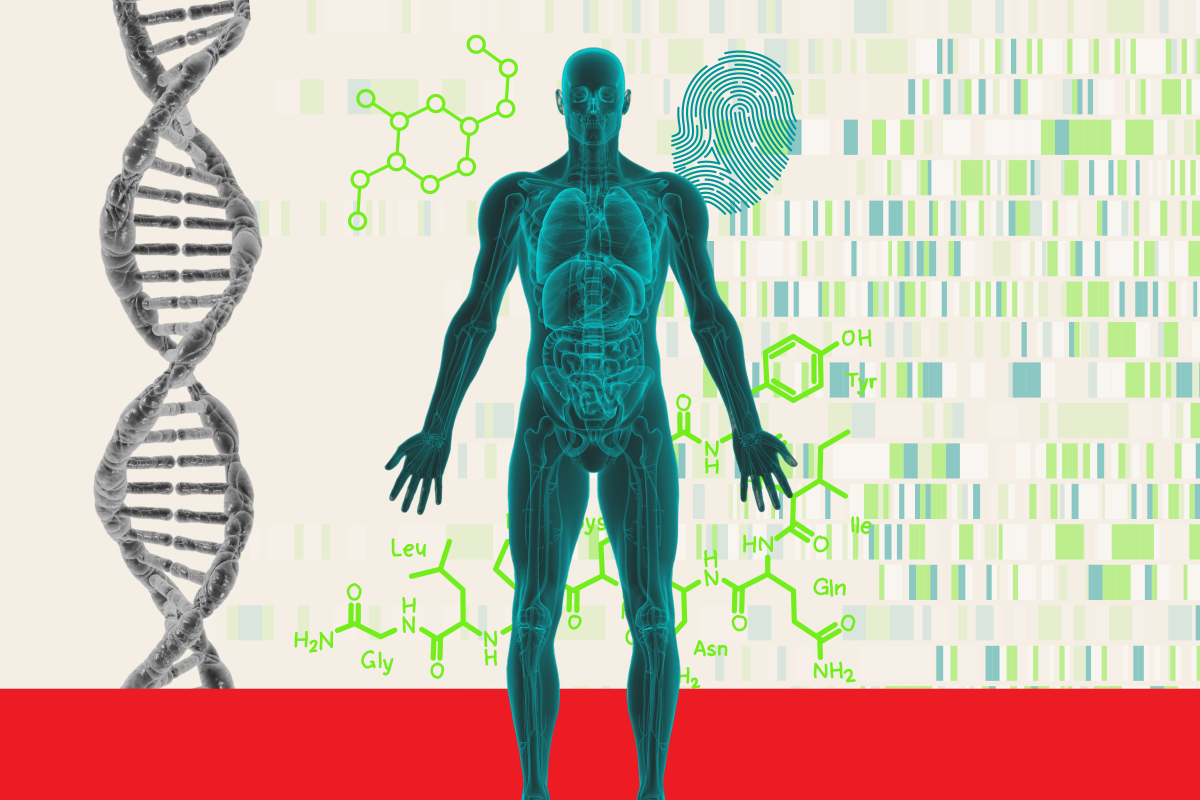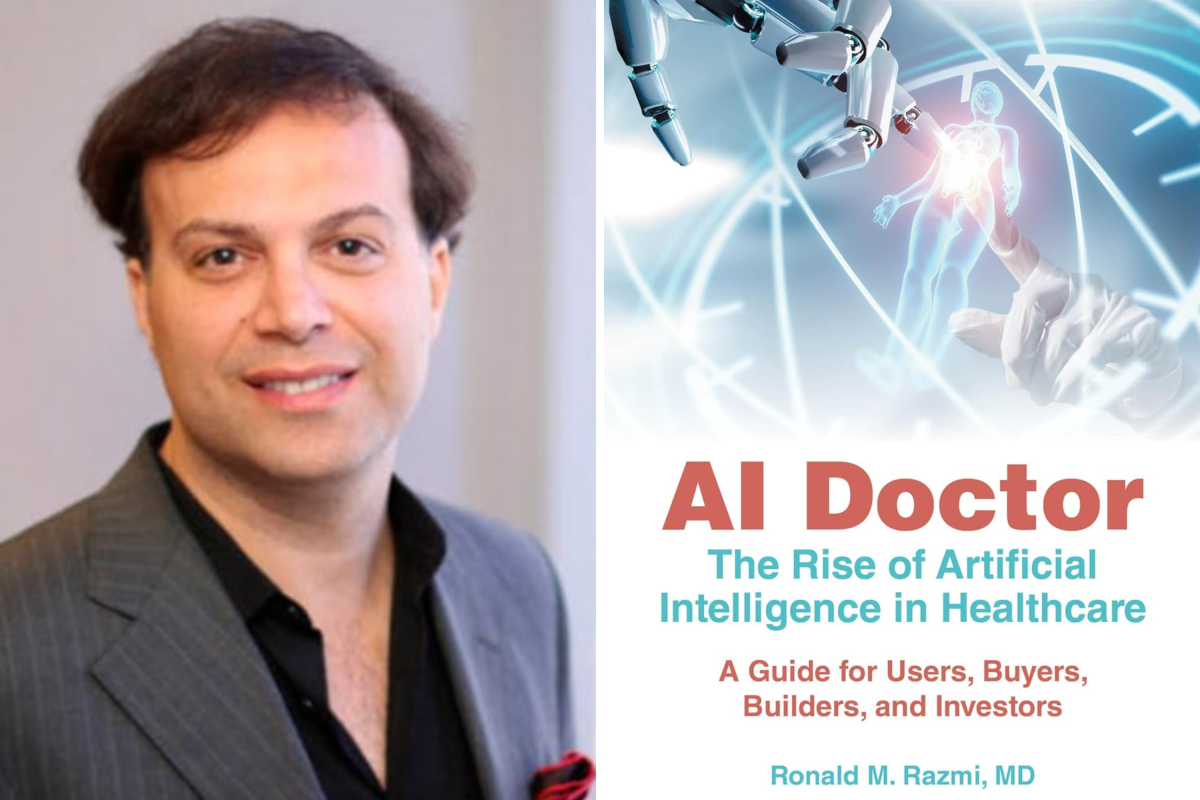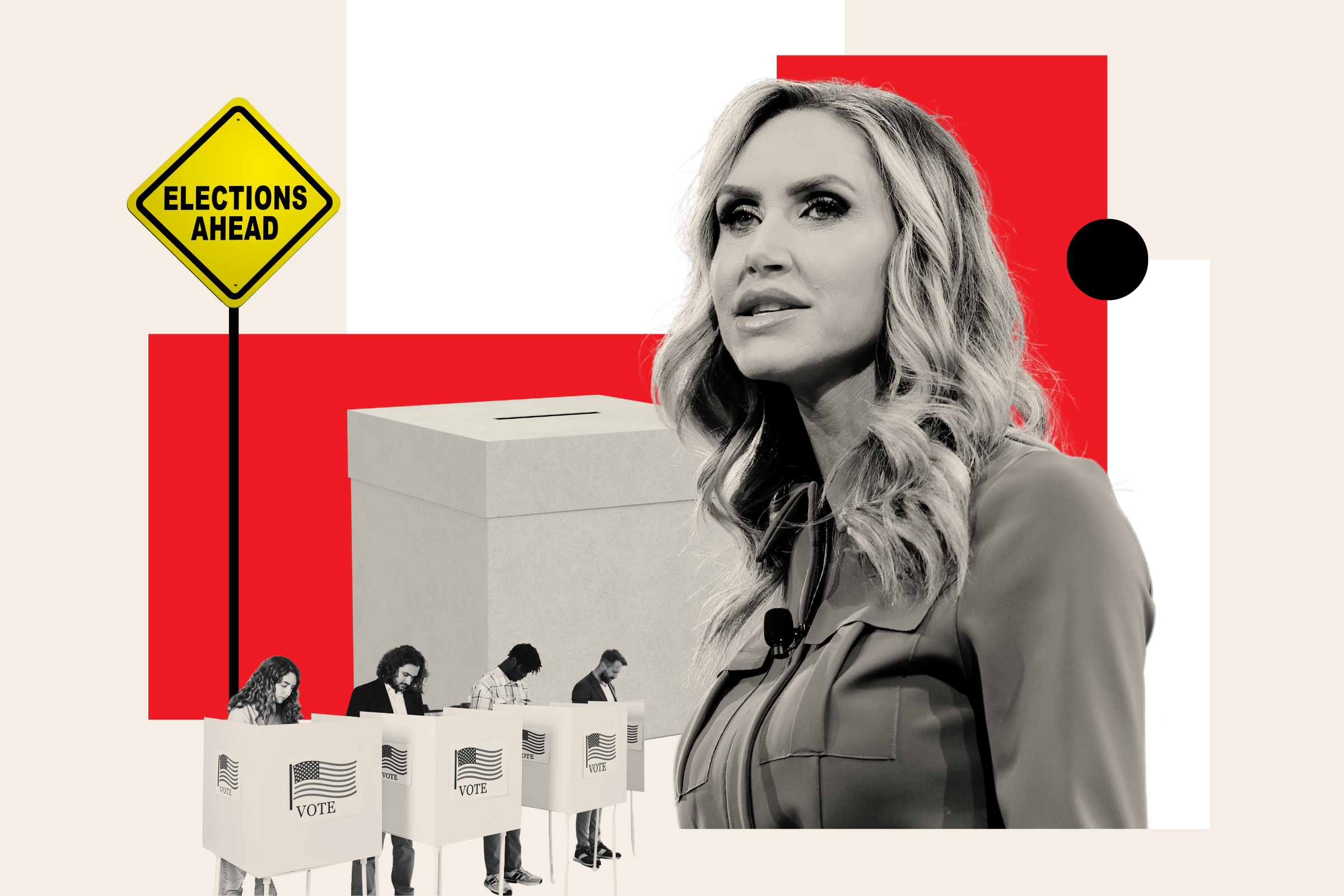Artificial intelligence (AI) could within a matter of decades unlock the secrets of our bodies and accurately diagnose illnesses by exploring more diverse data than any human is able to, according to a doctor and author of a new book on the emerging technology's use in healthcare.
In an interview with Newsweek, Dr. Ronald M. Razmi said that while AI is already showing itself to have useful applications in a clinical setting, the models used are currently limited in both sophistication and scope. Eventually, "multi-modal" deep learning algorithms will be able to understand a patient's multifaceted medical data and predict what may be wrong with them.
"Analyzing the secrets to our bodies and the complex relationships between our genes, our microbiomes, what is going on in our brains—studying those relationships—is going to be where AI is going to make the biggest impact," he said.
There are hurdles to overcome first—including a lack of adequate data to train AI models on, safety concerns, and hesitance among both physicians and the public—before AI is being used to assist doctors in decision-making.

At present, use of AI in a health care setting is usually limited to performing narrow tasks within a specific area of medicine—though they are still useful, according research included in Razmi's book, AI Doctor: The Rise of Artificial Intelligence in Healthcare.
In radiology, AI models can review scans and identify tumors or bone fractures that might have otherwise been missed. In cardiology—Razmi's area of expertise—one company has developed mobile phone-based algorithms that use smart watches to monitor heart rhythms in the wearer, which it hopes to use to identify when a patient may be about to have a cardiac arrest.
These advancements have already been implemented because the algorithms are required to analyze only one type of data, and can be trained on data that has already been widely digitized. X-ray images were scanned onto computers "decades ago," Razmi said, giving AI programs designed to spot problems in CT scans a wealth of examples to learn from before being put into use.
But Razmi said the current AI offering will be looked back on as the "stone ages" of health care compared with what will be possible in a few decades.
"If you think about it, humans have been on the planet for 300,000 years. A hundred years ago we did not have antibiotics, anaesthesia," he said. "I'm a cardiologist; in 1970, if you had a heart attack, your odds of dying from a heart attack were around 30 percent. Today, it's less than five.
"So, what has happened in the last 100 years is astounding: life expectancy going from around 35 to over 80 ... We've made tremendous progress, but we still don't necessarily understand how ...the genes that hold the code to our life interact with everything else in our body."
In years to come, Razmi expects deep learning AI to be able to map our genome and microbiome—the ecosystem of bacteria that resides in our gut—and how they affect our development and ability to fight diseases. Models will be able to consider a wide range of metrics about a particular patient and, with this holistic understanding of human beings, predict what illnesses they are likely to face or are currently suffering from.
These new models "will be able to solve previously unseen problems simply by having new tasks explained to them ... without needing to be retrained," Razmi writes in his book, being able to "accept inputs and produce outputs using varying combinations of data modalities (e.g. they can take images, text, laboratory results, or any combination thereof."
"Our minds aren't going to be able to uncover those relationships," he said. "That's where AI is not a luxury; it's going to become a necessity, because it's the only technology that can sift through billions of data and trillions of connections and figure out the key relationships and association[s]."
One of the key barriers to these sorts of models being implemented is a lack of labelled, structured and verified medical data that will go on to inform those predictions, Razmi said, with health care already behind other industries where safety is less of a concern in terms of digitizing and collectivizing this data.
Unstructured and unlabelled data comprises around 80 percent of health care data, which can be split not only across multiple locations but also formats, including on paper. Gaps in this training data could lead to AI models making errors of judgment, while datasets biased to a certain population type might mean it makes decisions that inadvertently harm another.

"Saying that health care data is in bad shape, it would be like saying Israel and Palestine have had a few problems over the last few years," he commented, noting as an example that when he was in a bike accident in New York last year, his local medical center had no record of his stay in a hospital ICU, despite being in the same city.
"Missing, even one piece of data about someone could change their entire health picture. So if you're using an AI algorithm to make predictions about their health or helping decision making, and you're missing a key piece of data, that's a real problem," he added.
But providing the data that advanced AI models will need comes with its own challenges, not least of which is the risk of medical privacy being breached if a population's complete medical records were held in a single database that was vulnerable to cyberattacks. According to the Independent, last year a ransomware attack on Britain's National Health Service breached a database containing 1.1 million patients' information.
Health care AI providers will also increasingly have to contend with a "patchwork of regulation" across different jurisdictions that could complicate safety requirements and access to data, Razmi said.
In the meantime, he described the current health care AI market as the "wild, wild west," with the Food and Drug Administration offering a "low bar" for approval, which was fuelling scepticism of the potential solutions among clinicians and reducing uptake.
AI is already making vast advances in sophistication, leading to a burgeoning number of applications in other sectors that models can undertake with increasing accuracy. This interview, for instance, was transcribed by an AI tool, but still needed a human to correct the odd mistake.
Razmi said that the health care industry's slower adoption was in part due to patient safety concerns and the safeguards needed to avoid mistakes, but also scepticism towards AI among clinicians.
American doctors remain the most sceptical of using AI, a 2019 Medscape survey of 1,500 physicians across three continents found, with nearly half saying they were uncomfortable with using AI-powered software in a professional setting.
This may be partly driven by the fact that AI machines are often wrong but convincing in their answers, which in a health care setting could be a matter of life or death and could leave doctors liable for mistakes. Allaying this concern may be through AI models having explainability: not only being able to output answers, but describe how they reached them.
While Razmi is aware of the "black box" perception of AI, he believes it will only become harder to explain models' answers the more complex they become and the more diverse information they draw upon—but is unsure this will be an issue.
"A lot of the drugs that we're using today, that we've been using for decades and they've been helping millions of people, we have no idea how they work," he said. "So this whole idea that we have to know how the algorithm reached its conclusions may not be as important as testing the output and making sure it's consistent, it's high quality [and] it makes sense."
Instead, Razmi, who has since moved into health care venture capital, suggested physicians may be worried about AI diminishing their role.
"Physicians are among the highest-paid professionals out there," he argued. "Anything that might threaten their income and their autonomy and so forth, historically they've shown they're very good at making sure those technologies never gain adoption. Nobody could force a doctor to practice medicine the way they don't want to."
But Razmi also envisages even the most advanced AI health care models will only be there to support and inform physicians; a patient's treatment is unlikely to ever be left to machines alone.
"AI can't weigh the cost of making a mistake," he said. "An algorithm could be touching millions of lives instead of one person. It could be making wrong predictions and assisting making wrong decisions across everybody who's using that algorithm."
But the benefit of having a well-trained, well-equipped AI model inform doctors' decisions, he said, was shortening the time those decisions take to make, improving the chances of a patient's recovery and survival.
Much like an AI transcription tool can cut down the time and labor its user must spend—but still needs a human to know what to cut and what to keep—Razmi expects AI health care tools to help doctors make decisions faster and more accurately, but not make those decisions for them.
"Pilots used to fly planes manually, but now they operate a dashboard with the help of computers," he writes in his book. "This has made flying safer and improved the industry. Health care can benefit from the same type of approach."
Correction 2/26/24, 10:30 a.m. ET: This article was updated to correct the misspelling of Dr. Razmi's name.
Uncommon Knowledge
Newsweek is committed to challenging conventional wisdom and finding connections in the search for common ground.
Newsweek is committed to challenging conventional wisdom and finding connections in the search for common ground.
About the writer
Aleks Phillips is a Newsweek U.S. News Reporter based in London. His focus is on U.S. politics and the environment. ... Read more
To read how Newsweek uses AI as a newsroom tool, Click here.






